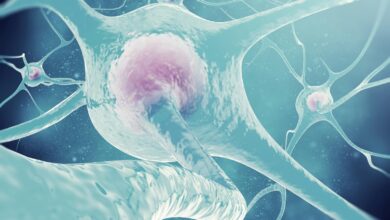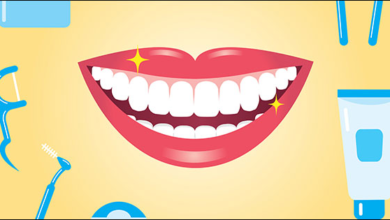Living with Patausche Kivua Coping Strategies and Treatment

Suffering from a rare disease such as Patausche Kivua may be very difficult and not only for the affected people but their families as well. This is probably because the disorder is not very famous and since there is little information people have a hard time diagnosing and treating it. Patausche Kivua is a disease that comes with certain symptoms that may bring about physical, mental and emotional imperfections in a person. Or even if the causes are still debated the general information about how to live with Patausche Kivua and the options that are available for treatment are highly important to enhance the quality of life.
Unfortunately, in this article I take my time to explain more on the symptoms, struggles, ways of dealing and the available methods of treatment for those living with Patausche Kivua.
Understanding Patausche Kivua: What is It?
It is a rare condition, and its exact nature is not well-documente in mainstream medical literature. It could be a neurological, psychological, or physical disorder, presenting with symptoms that affect various aspects of daily living. Since the condition is not widely known, it often remains undiagnosed for an extend period, leading to a complex set of challenges for patients.
The term Patausche might represent a specific set of symptoms, syndromes, or medical conditions that overlap with other known disorders. It is essential for individuals and healthcare providers to understand the potential causes, symptoms, and effects of this rare condition to provide appropriate care and support.
Key Symptoms of Patausche Kivua
While specific symptoms can vary from person to person, the following are some general signs associate with Patausche Kivua:
- Chronic pain: Most patients with Patausche develop chronic pain that has no identifiable cause, which, in turn, reduces their ability to do most activities without pain.
- Fatigue: The tiredness is chronic, extensive, and hard to overcome and this may make patients unable to perform their daily activities.
- Cognitive difficulties: Some of the effects include impaired memory, therefore having problems in concentrating and confusion which affects one’s daily activity and ability to reason.
- Mood swings or emotional instability: The condition may be accompanied by depression, anxiety and other mood swings; this means that those affected may be unable to stay emotionally stable all the time.
- Physical limitations: In severe cases there can be problems with motor functioning, coordination as well as the strength of muscles.
If any of these symptoms are present for a prolonged period and no other diagnosis is available, it’s essential to consult a healthcare provider for further evaluation.
Diagnosis: How is Patausche Kivua Identified?
Diagnosing Patausche Kivua can be difficult, given the rarity of the condition and the lack of standardized diagnostic criteria. However, there are several approaches that medical professionals might take to identify the disorder:
- Detailed Medical History: Physicians will often begin with a thorough review of a patient’s medical history, taking note of symptoms, frequency, and intensity.
- Physical and Neurological Exams: A complete physical and neurological examination is crucial to rule out other possible conditions and better understand the symptoms.
- Laboratory Testing: While there might not be a specific test for Patausche Kivua, various blood and imaging tests can help rule out other diseases.
- Specialized Testing: In some cases, more advance diagnostic methods, such as genetic testing or neuroimaging, may be required to identify the presence of rare disorders.
Due to its rarity, some doctors may not immediately recognize Patausche. Patients often need to consult specialists or seek second opinions before receiving an accurate diagnosis. It is essential for individuals and families to be persistent and advocate for their health.
Coping with Patausche Kivua: Challenges and Strategies
It can be hard to live with Patausche Kivua, especially since little is known of the disease and its prognosis. The physical, emotional and the social aspects which the patients undergo have a way of affecting their day to day activities. Nevertheless, there are some measures that any person having Patausche Kivua can apply in order to alleviate the symptoms and quality of living.
1. Physical Management and Pain Relief
Chronic pain is a common symptom of Patausche and can limit movement and functionality. Here are some approaches to manage physical symptoms:
- Pain Management Techniques: Over-the-counter pain relievers, prescription medications, and even alternative therapies like acupuncture can help control chronic pain.
- Physical Therapy: Regular sessions with a physical therapist can strengthen muscles, improve mobility, and alleviate discomfort caused by the condition.
- Regular Exercise: Low-impact activities like swimming, walking, and yoga can help reduce pain and stiffness, while also boosting overall energy levels.
- Sleep Hygiene: Fatigue is a significant issue for many people with Patausche Kivua. Practicing good sleep hygiene—going to bed at the same time each night, limiting caffeine intake, and creating a restful sleep environment—can improve rest quality.
2. Mental and Emotional Health
The emotional toll of dealing with a chronic, rare condition cannot be overlook. Individuals with Patausche Kivua may feel anxious, depressed, or isolated due to their condition. Therefore, managing mental health is crucial.
- Counseling and Therapy: Getting a chance to speak with a therapist is important for the management of anxiety, depression and any other emotional problems that may be as a result of chronic diseases.
- Mindfulness and Relaxation Techniques: Passive activities, such as meditation,deep breathing and other mindfulness base stress reduction activity are known to have health positive impact on the mental wellbeing of an individual.
- Support Groups: Being a member of a support group especially for diseases that are rare or chronic will help in having someone/ people to talk to and share with in case one feels lonely. It is comforting to know that one is not alone and there are others going through a similar situation as well as find strength in being able to do something about it.
3. Dietary Changes and Nutrition
The right nutrition plays a significant role in managing symptoms of Patausche Kivua. A well-balanced diet can improve energy levels, reduce inflammation, and support overall health.
- Anti-Inflammatory Diet: It is good to include in diet foods that are anti-inflammatory including fatty fish, nuts, seeds and green leafy vegetables.
- Adequate Hydration: Drinking water can eliminate tiredness and bring some change in the mental health of patients.
- Nutritional Supplements: Patients who may require some supplements may include Vitamin D, magnesium or omega-3 fatty acids, as they may have anti-inflammatory and anti-fatigue properties. That is why it is always advisable that additives such as those should initially be taken under the advice of a doctor.
Also Read; Fitness-Talkd.net
4. Daily Routine and Self-Care
Living with Patausche requires developing a daily routine that balances self-care and necessary tasks.
- Time Management: Prioritize tasks to conserve energy for essential activities. Pacing is essential to avoid over-exertion, especially on days when symptoms are more severe.
- Self-Care Rituals: Make time for relaxation and self-care practices such as reading, hobbies, or even light gardening to maintain emotional well-being.
- Assistive Devices: In more severe cases, using assistive devices such as walking aids or ergonomic furniture can make daily activities more manageable and reduce physical strain.
Treatment Options for Patausche Kivua
As of now, there is no known cure for Patausche Kivua; however, medications can be use in order to minimize the occurrence of the problem and improve a given individual’s condition. Therapies in general may be made according to the manifestations of the patient, contingent on the form and degree of sexual dysfunction.
1. Pharmacological Treatments
Doctors may prescribe medications to help manage the symptoms of Patausche Kivua. Common treatment options include:
- Pain Relievers: Medication for pain for instance using Neurological Softeners or Internal Analgesic, NSAID or opioids may be use to the treatment of mild, moderate or severe pain respectively although its use for long time is restricted due to the risk of dependency.
- Antidepressants and Anti-Anxiety Medications: Such medication may aid in treating the psychological manifestation that may be evident in chronic diseases.
- Neurological Medications: For those who may present with neurological signs such as seizures, cognitive impairment or tremors, drugs like antiepileptics maybe used or anti-psychotics maybe administered.
2. Physical Therapy and Rehabilitation
Physical therapy is often recommend to improve strength, flexibility, and balance. A rehabilitation plan might include exercises specifically designed to reduce pain and improve mobility. Occupational therapy may also be beneficial in helping individuals adapt to everyday tasks.
3. Cognitive Behavioral Therapy (CBT)
CBT is a highly effective method for managing the mental and emotional challenges of chronic illness. This therapeutic approach helps patients recognize negative thinking patterns and develop more positive ways to manage stress, anxiety, and depression.
4. Alternative Therapies
Some people experience relief through alternative therapies like:
- Acupuncture: ST – This is an old Chinese technique that uses pressure of fingers or with the aid of a pointed tool on particular points in the body to alleviate pain.
- Massage Therapy: It was further note that through the services of a masseuse one is able to acquire regular massages that help to ease muscle tension and pain.
- Chiropractic Care: Some of the patients with musculoskeletal problems relate to Patausche Kivua can be may be benefitt with chiropractic adjustment.
5. Lifestyle Modifications
Adopting a healthier lifestyle can significantly reduce the intensity of symptoms. This might include:
- Regular Exercise: Low impact form of exercise such as swimming and yoga help in increasing the mobility of the joints and thus reducing the pains.
- Stress Reduction: Stress seems to worsen symptoms so activities such as meditation, mindfulness, or doing tai chi might be of benefit.
- Dietary Adjustments: Anti-inflammatory diet means avoiding those foods which cause painful sensations and sharing those which have beneficial influence on the body.
Conclusion
It is always challenging to live with Patausche Kivua, but the best measures and approaches toward the management of the symptoms can well help to live a well/happy life. Though it is rare and still not well understood, more studies and the efforts of patients and caregivers can hopefully help to get more light cast upon it treatment and causes in the future.
In light of this then it is imperative to understand that pain management alongside support for issues such as mental health, avoiding bad habits such as smoking and excessive drinking among patients with Patausche can immensely enhance the quality of their lives by adopting various treatment plans. As always, the patients and families should seek advice from health care personnel and continue advocating for knowledge on research findings as well as treatments in the market.





